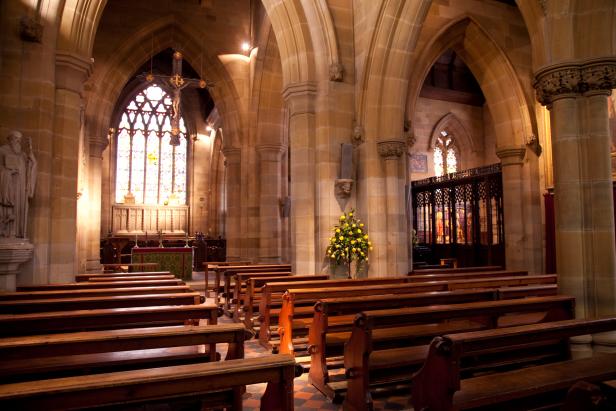
In the last few decades, it has become commonplace for Catholic archdioceses, dioceses, and religious orders to declare bankruptcy rather than face civil sexual abuse lawsuits in court. Undoubtedly, this is a well-considered national strategy because forty US Catholic religious organizations have sought bankruptcy protection in chapter 11 as of May 2025. Twenty-six bankruptcies have concluded, leaving fourteen cases still pending.
The flood of California suits came after 2019 legislation opened a three-year “look-back window” that allowed survivors of childhood sexual abuse to file suits based on old claims that would normally have fallen outside the statute of limitations. When the window closed, more than 2,000 individuals around the state had filed cases against the Catholic church; 330 accusers have sued the Oakland diocese alone. Now, most of the California dioceses and one archdiocese-San Francisco have declared bankruptcy. The Archdiocese of Los Angeles remains the largest outlier. The Los Angeles Archdiocese reached a $880 million settlement with claimants.
“No one really expected this huge number [of abuse cases] to come in at this last month,” said Maureen Day, a sociologist and associate professor of religion and society at the Franciscan School of Theology. “It suddenly became a much larger financial hardship for many dioceses.”
But declaring chapter 11 does not mean that the church is actually insolvent, said Marie Reilly, professor of law at Penn State University. Rather, it is a legal strategy undertaken by corporations that say they don’t have the funds to pay a high number of individual settlements. Known as “reorganization”, these bankruptcy protections let the church avoid undertaking dozens, if not hundreds or thousands, of individual costly trials by grouping them into one settlement.
“It will look like more of an administrative process,” said Reilly, who specializes in bankruptcy law and also created a database that tracks diocesan bankruptcies.
The Catholic Church is fond of telling survivors of sexual abuse that the bankruptcy route is actually fairer to them. However, this is a spurious claim at best. Bankruptcy affords the diocese or archdiocese to avoid a public revelation of their files on abusers and how officials handled abuse complaints. Also, it takes years to resolve bankruptcy claims which denies survivors a financial settlement in a timely fashion.
The Catholic Church sex abuse crisis, like the Boy Scouts of America abuse problem, has always centered around the internal documents of the church which demonstrated a clear disregard for survivors in favor of protecting the reputation of the institution. In bankruptcy, these documents often never are released. Finally, a bankruptcy claim puts an end to any older abuse claims being brought in civil court. In bankruptcy, the Catholic Church gets a fresh start with very few lingering consequences. Another drawback for survivors whose claim is adjudicated by a bankruptcy court concerns the settlement itself. The bankruptcy court determines the value of the case, and the survivor is presented with a “take it or leave it scenario”. It is abundantly clear that the Catholic Church is incapable of policing itself in spite of papal pronouncements concerning zero tolerance. Bankruptcy proceedings tend to inadvertently reward an institution incapable of reform and taking steps to protect children.

